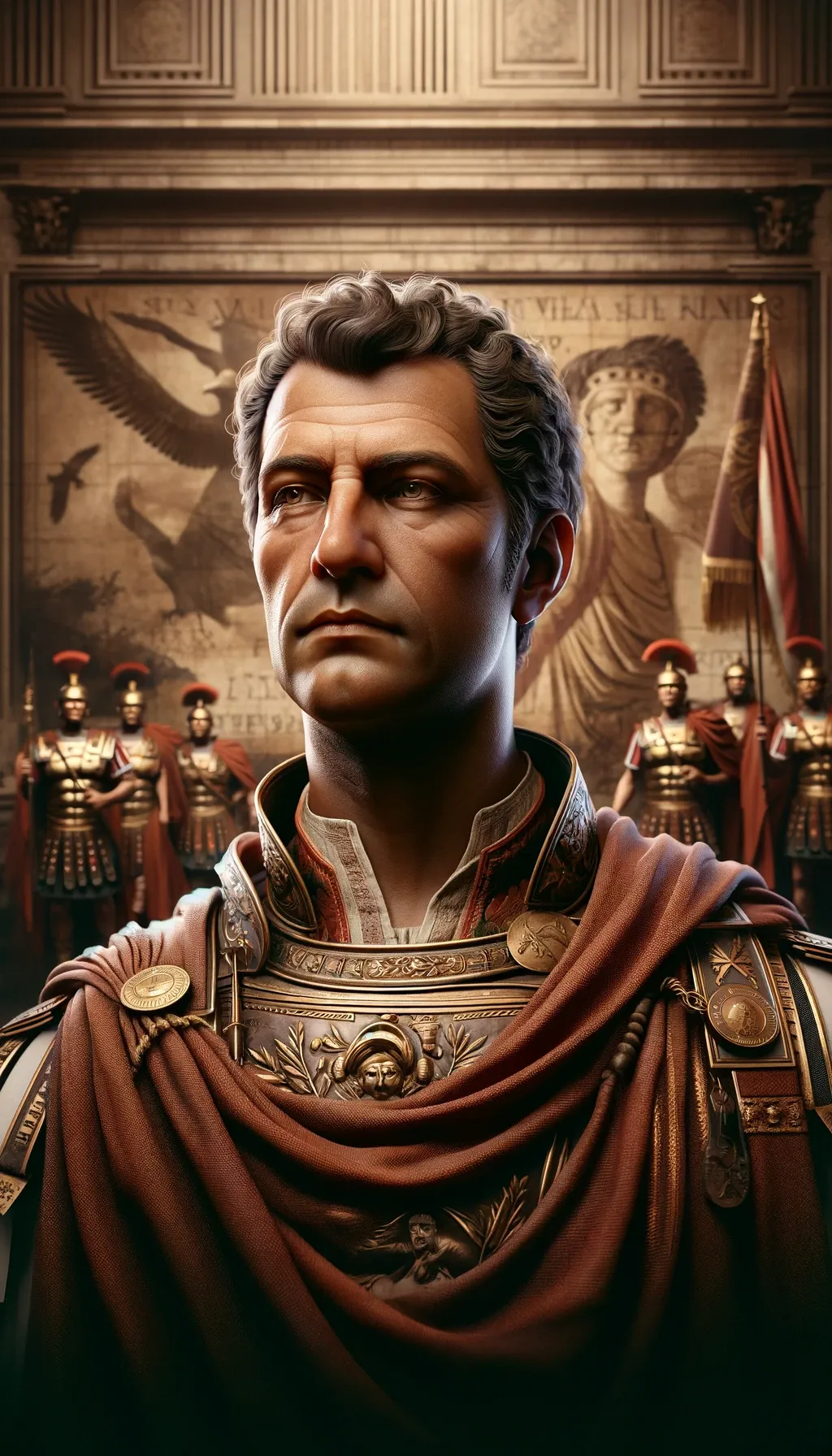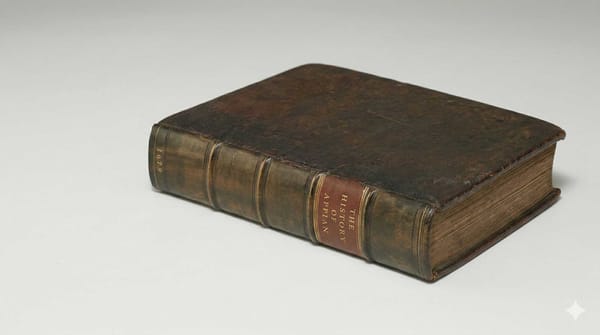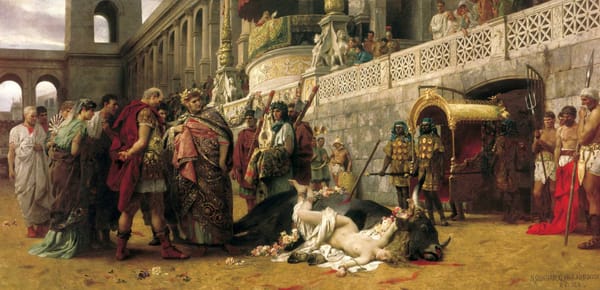The Intriguing Tale of Mark Antony: From Rome to Egypt
Mark Antony's life intertwined with Julius Caesar and Cleopatra not only shaped the course of history but also spawned a narrative rich in drama, power struggles, and romance.

Mark Antony, a pivotal figure in the transformation of the Roman Republic into the autocratic Roman Empire, is a character of legendary proportions, immortalized by his political acumen, military exploits, and his storied love affair with Cleopatra VII of Egypt. His life intertwined with Julius Caesar and Cleopatra not only shaped the course of history but also spawned a narrative rich in drama, power struggles, and romance.
Early Life and Rise to Power
Antony was born on January 14, 83 BCE, to Marcus Antonius Creticus and Julia of the Caesars, a cousin of Julius Caesar, living between 104 and approximately 39 BCE. His education in rhetoric was overseen by his mother and his grandmother, Julia Minor, Caesar's sister. Initially dedicated to his studies, especially philosophy, Antony's focus shifted upon forming friendships with Pubilius Clodius Pulcher and another youth known as Curio.
Plutarch, wrote for Mark Antony:
“Antony gave brilliant promise in his youth, they say, until his intimate friendship with Curio fell upon him like a pest. For Curio himself was unrestrained in his pleasures, and in order to make Antony more manageable, engaged him in drinking bouts, and with women, and in immoderate and extravagant expenditures. This involved Antony in a heavy debt and one that was excessive for his years — a debt of two hundred and fifty talents.” (Life of Antony)
His military career began under Aulus Gabinius in Syria, but it was his alignment with Julius Caesar that propelled him to the forefront of Roman politics. As Caesar's trusted general and administrator, Antony played a crucial role in the Gallic Wars and was instrumental in securing Caesar's dictatorship.
In 49 BC, Antony was elected tribune and emerged as a vigorous supporter of Caesar, defending him against his Senate adversaries. During Caesar's initial dictatorship, Antony was appointed his deputy. By 48 BC, he was in Greece, aiding Caesar's forces at the Battle of Pharsalus. The following year saw Antony forcefully removed from the Senate by those opposed to Caesar, providing a rallying cause for Caesar's troops as they advanced over the Rubicon River, sparking the Republican Civil War. In 44 BC, as Caesar entered his fifth and ultimate consulship, Antony served alongside him as co-consul.

As the Ides of March drew near, Antony caught wind of a conspiracy against Caesar but was unable to alert him in time. Post-assassination, Antony escaped Rome in disguise but quickly returned to safeguard Caesar's legacy against the plotting senators. He assumed responsibility for Caesar's will and documents, delivering a moving eulogy to honor the deceased ruler.
Family Ties and Political Alliances
Antony's family was central to his ascent; his marriage to Fulvia, a powerful political activist, solidified his standing within Rome's elite. However, his alliances were not without controversy, particularly his union with Octavia Minor, sister of his rival Octavian (the future Augustus), which was a strategic attempt to cement a fragile peace between the two leading Roman factions.
Antony and Octavian
In 49 B.C., Antony was chosen as a tribune and became a key supporter of Caesar, opposing Caesar's adversaries within the Senate. During Caesar's initial dictatorship, Antony served as his primary deputy. By 48 B.C., he found himself in Greece, aiding Caesar's forces at the Battle of Pharsalus. The following year, Antony's forceful removal from the Senate by those opposed to Caesar provided a rallying cry for Caesar's troops as they crossed the Rubicon, sparking the Civil War of the Republic. In 44 B.C., during Caesar's ultimate term as consul, Antony shared the consulship with him.

As conspiracy against Caesar was brewing, Antony caught wind of the plot but couldn't alert Caesar in time. Post-Caesar's assassination, Antony escaped Rome disguised as a slave, only to return later to safeguard Caesar's legacy against his murderers. He assumed control over Caesar’s will and documents and delivered a passionate funeral oration for Caesar.
Caesar's will named his posthumously adopted son, Octavian, as his heir, leaving Antony hesitant to pass on his friend's legacy to an 18-year-old, thus becoming Octavian's adversary. Their forces first engaged in 43 B.C., where Antony was repelled at Mutina and Forum Gallorum. Despite this, his leadership was strong enough to convince Octavian to form an alliance rather than continue their rivalry.
Together with Lepidus, their less significant competitor, Octavian and Antony established the Second Triumvirate, dividing Rome’s territories among themselves—Octavian took the West, Antony the East, and Lepidus Africa. Within a year, Antony had vanquished Caesar's murderers, Brutus and Cassius, at the Battle of Philippi, wiping out the foremost champions of the Republican movement and cementing his military renown.
The Bond with Cleopatra
In 41 B.C., Antony started a romantic relationship with Cleopatra, the Egyptian queen and former consort of Caesar, resulting in the birth of twins, Alexander Helios and Cleopatra Selene. After addressing the consequences of a rebellion led by his wife and brother-in-law against Octavian in Rome, Antony was pressured by the Senate into a political union with Octavian's sister, Octavia Minor, in 40 B.C., following his wife's death.
The Triumvirate was reaffirmed in 37 B.C., after which Antony reunited with Cleopatra and had another child, Ptolemy Philadelphus. Their affair became increasingly public, with both participating in ceremonies that deified them as the gods Dionysus-Osiris and Venus-Isis, and they provocatively showcased their children and Cleopatra's son by Julius Caesar, Caesarion, as legitimate heirs in defiance of Roman law against foreign marriages. Politically, Antony's ties with Egypt deepened, especially after seeking Cleopatra's support following his unsuccessful military campaign against the Parthians in 36 B.C.

Antony's relationship with Cleopatra VII was both passionate and politically charged. Their alliance was initially a political maneuver, but it quickly blossomed into a deep love affair. Cleopatra's influence over Antony was profound, with their partnership aiming to establish a new eastern empire, challenging Rome's authority.
As Octavian's power surged, he ousted Lepidus from the triumvirate, citing a fabricated insurrection. In 32 B.C., Antony's separation from Octavia led Octavian to wage war, targeting not Antony directly but Cleopatra. The conflict unfolded in western Greece, where, despite Antony's numerical advantage, his fleet was consistently outmaneuvered by Octavian's admiral, Agrippa. Following their defeat at the Battle of Actium, Antony and Cleopatra fled to Egypt, closely pursued by Octavian's forces.
The tragic end
Upon Octavian's arrival in Alexandria, Antony and Cleopatra chose death over capture. Believing Cleopatra had already taken her life, Antony ended his own with a sword, only to spend his final moments with her. Antony passed away on August 1, 30 BC. Cleopatra later succumbed to a self-inflicted venomous bite. Following Antony's death, his honors were rescinded, and his statues were dismantled. Cicero, Antony’s primary adversary in the senate, mandated that Antony's name be erased from his lineage. Octavian effectively became the undisputed ruler, later adopting the title Augustus and governing Rome for forty years.
Mark Antony's life was a saga of ambition, power, and romance that left an indelible mark on history. His alliances with Julius Caesar and Cleopatra VII, coupled with his own political and military prowess, played a pivotal role in the transformation of the Roman political landscape. His story, immortalized by literature and cinema, continues to fascinate, serving as a testament to the complexities of power, loyalty, and love.





About the Roman Empire Times
See all the latest news for the Roman Empire, ancient Roman historical facts, anecdotes from Roman Times and stories from the Empire at romanempiretimes.com. Contact our newsroom to report an update or send your story, photos and videos. Follow RET on Google News, Flipboard and subscribe here to our daily email.
Follow the Roman Empire Times on social media: